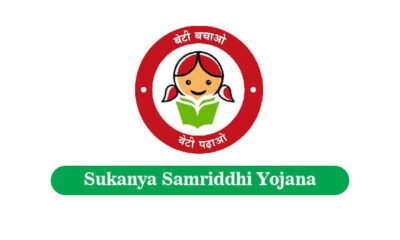Loans
MSME Loan Interest Rates in India

The Micro, Small, and Medium Enterprises (MSMEs) sector is a critical component of the Indian economy, significantly contributing to employment, innovation, and GDP growth. However, one of the primary challenges MSMEs face is accessing affordable credit. Understanding MSME loan interest rates in India is essential for business owners seeking financing. This comprehensive guide will explore the intricacies of MSME loan interest rates, the factors influencing these rates, and how MSMEs can secure the best possible terms.
What are MSME Loans?
MSME loans are financial products specifically designed to support micro, small, and medium enterprises. These loans can be utilized for various purposes such as expanding business operations, purchasing equipment, managing working capital, or refinancing existing debt. Financial institutions, including banks and non-banking financial companies (NBFCs), offer these loans with different terms and conditions.
Importance of MSME Loans
MSME loans are vital for the growth and development of small businesses. They provide the necessary capital for investments in new technologies, expanding the workforce, and entering new markets. Access to affordable credit ensures that MSMEs can compete effectively and contribute to the country’s economic development.
Factors Affecting MSME Loan Interest Rates
Several factors influence the interest rates on MSME loans in India. Understanding these factors can help business owners negotiate better terms and secure loans at competitive rates.
1. Credit Score
A business owner’s credit score is a crucial factor in determining the interest rate on an MSME loan. A higher credit score typically indicates a lower risk for the lender, resulting in more favorable interest rates.
2. Business Vintage
The number of years a business has been in operation can affect the interest rate. Established businesses with a proven track record are generally considered less risky and may receive lower interest rates compared to newer enterprises.
3. Financial Health
The financial health of the business, including profitability, revenue, and cash flow, plays a significant role in determining interest rates. Lenders prefer businesses with stable and strong financials, offering them better rates.
4. Loan Amount
The amount of the loan also impacts the interest rate. Larger loan amounts may come with lower interest rates due to the economies of scale for the lender.
5. Type of Loan
Different types of MSME loans, such as term loans, working capital loans, and equipment financing, come with varying interest rates. The purpose of the loan can influence the risk assessment and, consequently, the interest rate.
6. Collateral
Secured loans, which require collateral, generally have lower interest rates compared to unsecured loans. The presence of collateral reduces the lender’s risk, resulting in more favorable terms for the borrower.
7. Market Conditions
Prevailing economic conditions and the monetary policy of the Reserve Bank of India (RBI) can affect MSME loan interest rates. During periods of economic growth, interest rates may be lower, while they may increase during economic downturns.
Current MSME Loan Interest Rates in India
As of 2024, the interest rates on MSME loans in India vary widely depending on the lender, loan amount, and the factors mentioned above. On average, MSME loan interest rates range from 8% to 18% per annum. It’s essential for business owners to compare offers from different lenders to find the most competitive rates.
Top Banks and NBFCs Offering MSME Loans
Several banks and NBFCs in India are known for their MSME loan offerings. Here are some of the top institutions providing competitive interest rates and favorable terms:
1. State Bank of India (SBI)
SBI is one of the largest public sector banks in India, offering a variety of MSME loans with interest rates starting from 8.25% per annum. SBI’s MSME loan products include working capital loans, term loans, and equipment financing.
2. HDFC Bank
HDFC Bank is a leading private sector bank providing MSME loans with interest rates ranging from 9.50% to 16.30% per annum. HDFC Bank offers customized loan solutions to meet the specific needs of MSMEs.
3. ICICI Bank
ICICI Bank offers a wide range of MSME loans with interest rates starting from 9.25% per annum. The bank provides quick loan approvals and flexible repayment options to support business growth.
4. Bajaj Finserv
Bajaj Finserv is a prominent NBFC offering MSME loans with interest rates between 12% and 18% per annum. Bajaj Finserv is known for its hassle-free loan processing and minimal documentation requirements.
5. Kotak Mahindra Bank
Kotak Mahindra Bank provides MSME loans with interest rates starting from 11% per annum. The bank offers various loan products, including working capital loans, term loans, and trade finance.
Types of MSME Loans
MSME loans come in various forms, each catering to specific business needs. Here are the common types of MSME loans:
1. Term Loans
Term loans are used for long-term investments such as purchasing equipment or expanding operations. They come with fixed or variable interest rates and are repaid over a set period.
2. Working Capital Loans
Working capital loans are short-term loans used to manage day-to-day business operations. They help maintain liquidity and cover expenses like payroll, rent, and inventory.
3. Equipment Financing
Equipment financing loans are used to purchase new or upgrade existing equipment. These loans are usually secured by the equipment being financed.
4. Invoice Financing
Invoice financing allows businesses to borrow against their outstanding invoices. This helps improve cash flow by providing immediate funds while waiting for customers to pay.
5. Overdraft Facilities
Overdraft facilities provide businesses with a credit limit that can be used as needed. Interest is charged only on the amount borrowed, offering flexibility in managing short-term funding requirements.
How to Apply for an MSME Loan
Applying for an MSME loan involves several steps. Business owners should be prepared with the necessary documentation and a clear business plan to increase their chances of approval.
Step 1: Determine Loan Requirements
Identify the purpose of the loan and the amount needed. Having a clear understanding of the loan requirements will help in selecting the right loan product.
Step 2: Research Lenders
Compare different lenders based on their interest rates, terms, and conditions. Look for lenders with experience in providing MSME loans and a good track record of customer service.
Step 3: Prepare Documentation
Gather all necessary documents, including business registration certificates, financial statements, income tax returns, bank statements, and a detailed business plan.
Step 4: Submit Application
Fill out the loan application form accurately and attach all required documents. Submit the application to the selected lender.
Step 5: Loan Processing
The lender will review the application and may request additional information or documentation. This process may include a credit check and an assessment of the business’s financial health.
Step 6: Loan Approval and Disbursement
Once the loan is approved, the lender will disburse the funds to the business’s bank account. The terms of the loan, including the interest rate and repayment schedule, will be outlined in the loan agreement.
Tips for Securing Low-Interest MSME Loans
Securing a low-interest MSME loan requires careful planning and preparation. Here are some tips to help business owners obtain the best possible terms:
1. Maintain a Good Credit Score
A high credit score demonstrates financial responsibility and reduces the lender’s risk, resulting in lower interest rates.
2. Improve Financial Health
Ensure that the business’s financial statements are in order and reflect profitability and positive cash flow. Strong financial health increases the chances of securing favorable loan terms.
3. Provide Collateral
Offering collateral can significantly reduce the interest rate on an MSME loan. Consider leveraging assets such as property, equipment, or inventory to secure the loan.
4. Choose the Right Loan Product
Select a loan product that aligns with the business’s needs and financial situation. Different loan products come with varying interest rates and terms.
5. Negotiate with Lenders
Don’t hesitate to negotiate with lenders to secure better interest rates and terms. Highlighting the business’s strengths and financial stability can help in the negotiation process.
6. Explore Government Schemes
The Indian government offers various schemes and subsidies to support MSMEs. Explore options such as the Credit Guarantee Fund Trust for Micro and Small Enterprises (CGTMSE) and the Prime Minister’s Employment Generation Programme (PMEGP) for additional benefits.
Government Initiatives to Support MSMEs
The Indian government has launched several initiatives to support MSMEs and provide them with access to affordable credit. These initiatives aim to promote entrepreneurship, enhance competitiveness, and boost economic growth.
1. Credit Guarantee Fund Trust for Micro and Small Enterprises (CGTMSE)
CGTMSE provides credit guarantees to financial institutions, encouraging them to offer collateral-free loans to MSMEs. This scheme reduces the risk for lenders and enables MSMEs to secure loans at lower interest rates.
2. Prime Minister’s Employment Generation Programme (PMEGP)
PMEGP is a credit-linked subsidy scheme aimed at generating self-employment opportunities through the establishment of new micro-enterprises. The scheme provides financial assistance to MSMEs in the form of a subsidy and bank credit.
3. Mudra Yojana
The Micro Units Development and Refinance Agency (MUDRA) Yojana offers loans up to Rs. 10 lakhs to non-corporate, non-farm small/micro enterprises. These loans are provided by banks, NBFCs, and microfinance institutions (MFIs) at competitive interest rates.
4. Stand-Up India Scheme
The Stand-Up India Scheme aims to promote entrepreneurship among women and scheduled castes/scheduled tribes. It provides bank loans between Rs. 10 lakhs and Rs. 1 crore for greenfield enterprises in manufacturing, services, or trading sectors.
Interest Rate Relief on MSME Loans Post-COVID-19
In response to the economic impact of COVID-19, the Indian government introduced several measures to support MSMEs, including:
- Emergency Credit Line Guarantee Scheme (ECLGS): This scheme provides additional funding to MSMEs to help them meet operational liabilities and restart businesses.
- Restructuring of MSME Loans: Lenders were allowed to restructure MSME loans without downgrading the asset classification.
- Interest Subvention Schemes: These schemes offer interest subsidies to reduce the financial burden on MSMEs.
Future Outlook for MSME Loan Interest Rates
The future of MSME loan interest rates in India will be influenced by several factors, including economic recovery post-COVID-19, government policies, technological advances in lending, and competition among lenders. MSMEs should stay informed about market trends, government initiatives, and emerging borrowing opportunities to secure optimal financing solutions.
Conclusion
Understanding MSME loan interest rates in India is crucial for business owners seeking financing for growth and expansion. By considering the factors that influence interest rates, comparing offers from different lenders, and leveraging government schemes, MSMEs can obtain loans at competitive rates. Maintaining a strong credit score, improving financial health, and providing collateral can further enhance the chances of securing favorable loan terms. With the right approach and preparation, MSMEs can access the capital they need to thrive and contribute to the Indian economy.
-

 Credit Card2 years ago
Credit Card2 years agoHow to Foreclose ICICI Credit Card EMI
-

 Saving Schemes2 years ago
Saving Schemes2 years agoHow to Check Sukanya Samriddhi Account Balance by SMS
-

 Credit Card2 years ago
Credit Card2 years agoHow to Unblock Credit Card ICICI
-

 Government Schemes1 year ago
Government Schemes1 year agoHow to Apply for Ayushman Bharat Yojana: A Step-by-Step Guide
-

 Saving Schemes2 years ago
Saving Schemes2 years agoHow to Open a Sukanya Samriddhi Account Online: A Step-by-Step Guide
-

 Government Schemes2 years ago
Government Schemes2 years agoGovernment Schemes for Girl Child
-
Credit Card2 years ago
How to Check ICICI Credit Card Balance
-

 Credit Card2 years ago
Credit Card2 years agoHow to Change Address in ICICI Credit Card
